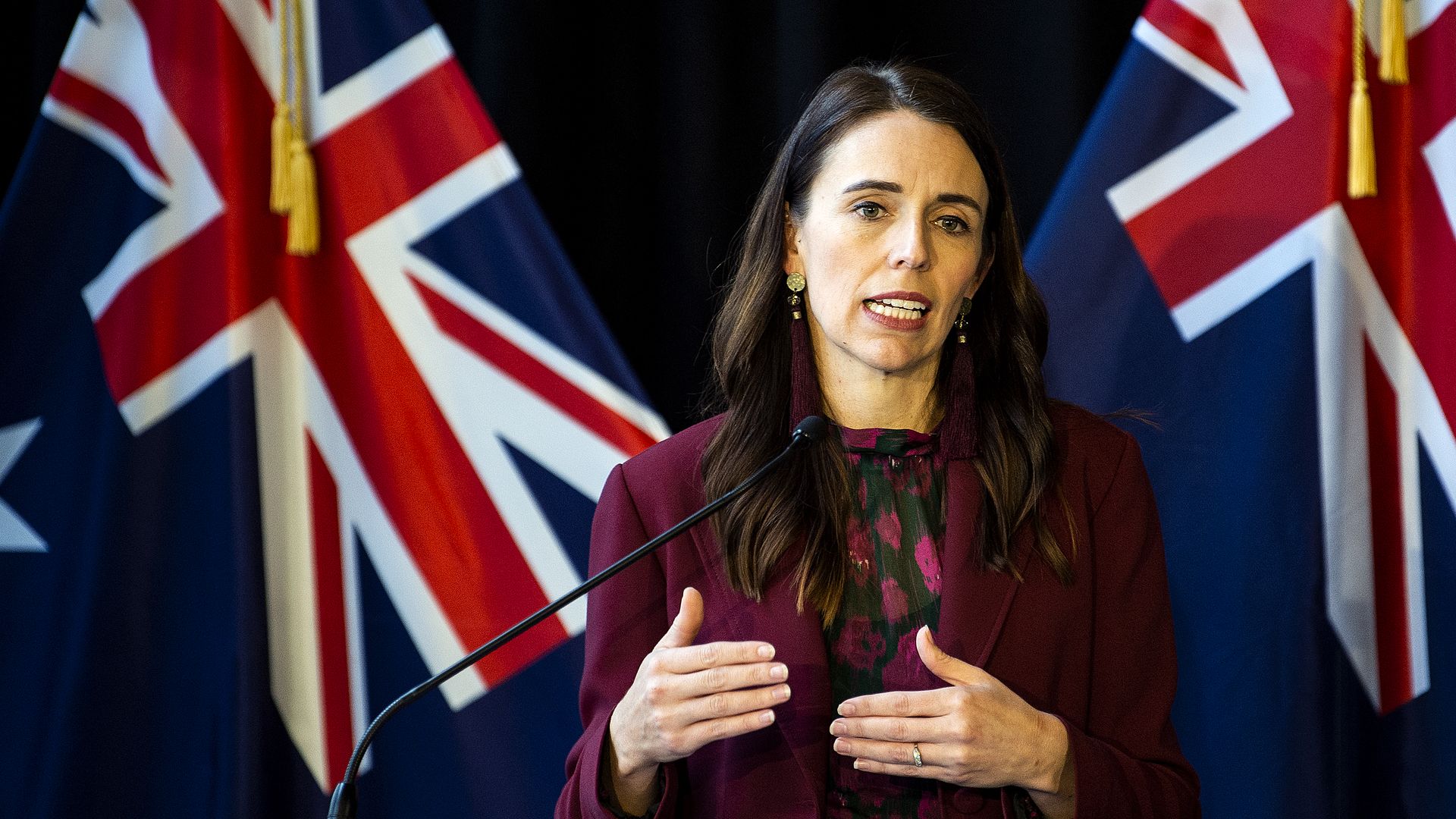NZ report recommends drastic methane emissions cuts to meet climate goals
Add Axios as your preferred source to
see more of our stories on Google.

Prime Minister Jacinda Ardern during a May news conference in Queenstown, New Zealand. Photo: Joe Allison/Getty Images
New Zealand Prime Minister Jacinda Ardern said in a speech Wednesday that the climate crisis was a matter of "life or death," as a blueprint for meeting her government's ambitious green targets was unveiled.
Driving the news: The Climate Commission, an independent body advising the government, outlines in its report what the country needs to do to meet its target for 2050 of producing zero carbon emissions — including reducing biogenic methane emissions by 24% to 47%, with no new household gas connections by 2025.
Why it matters: While the goals are ambitious, what's particularly notable is it's unusual for a nation to have a methane target (the U.S. doesn't have one) — especially a country like NZ, where agriculture is the largest sector of the tradeable economy, contributing to 5.1% of the GDP in the 12 months to September 2020.
- Per a government statement, New Zealand is the "first country ... to legislate for a price on agricultural emissions and we'e currently building the world’s only farm-level emissions measurement, management and pricing system, which will come into effect in 2025."
- For the country to meet its methane target, herd sizes would have to decrease by 10% to 15%, according to the report.
Zoom in: The commission provides three pathways for the government to follow to keep within the proposed emission budgets.
- For biogenic methane, this means cuts of 8% by 2025, 12% by 2030 and 17% by 2035.
- It also recommends phasing out fossil-fuel-powered vehicles by 2030 to 2035, when almost all cars imported should be electric, according to the report.
Of note: This 2035 phase-out target for sales of new internal combustion engine vehicles is in line with several other governments, including California's.
Yes, but: For New Zealand to meet its electric vehicle target, the country would have to increase its market share from the current 1-2% to 50% in the next 10 years, the Guardian notes.
What they're saying: Ardern said in her speech that the report "reminds us that meeting our climate targets is achievable and affordable with existing technology."
- She said in a separate statement that the commission "makes clear for the first time that delaying action will only make the effort harder and more expensive for the economy in the long run."
- Ardern noted the report "predicts that not taking action now will cost us 2.3% of GDP by 2050, almost double the cost to our economy of acting now."
What's next: The government will announce its final Emissions Reduction Plan, based on the commission's guidance, by the end of this year.
Go deeper: Prime minister pledges 100% renewable energy generation in New Zealand by 2030
